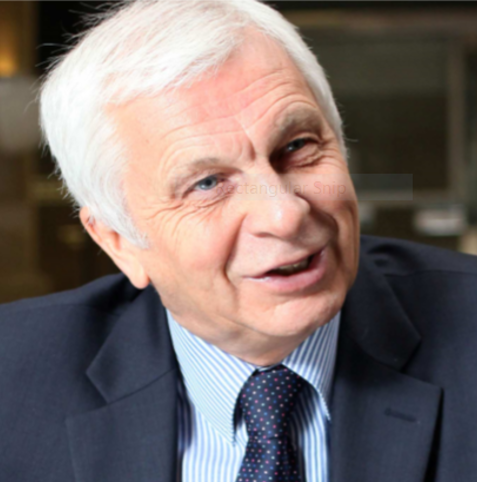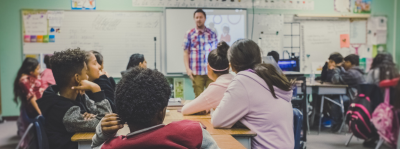Professor Mick Waters: Planning to get learning going again

When the government closed our schools, the natural concerns were about examinations and pupils not losing out. There was less voiced concern about what else children might be losing in an educational sense. Missing so much schooling will have an effect. For some, the six-week summer break is an annual interruption to progress. How will an overall gap of so many weeks affect the learning of children of all ages?
So, what is the potential learning loss?
First, the loss of learning in the sense of missing out on the planned content and how far the children will have slipped on the ladder of planned learning. Obviously, we can see from a chart what children have not ‘covered’. Some re-structuring planning could address this.
Second, and vitally, there will be the loss of more rounded aspects of learning, the things that are often learned in the context of schooling through experience of doing. Developing learning attitudes, working together and building confidence are in some ways harder aspects to retrieve.
Third, a potential loss of a range of social behaviours to support learning felt variably by children. Those who find it hard to settle after a weekend and worse after a holiday are going to be struggling in the autumn this year.
The three areas of loss, and others, will each have been felt differently by different children when they return to the rhythm of schooling over what has been an extensive period of time. For some children, the ‘lockdown’ will have been a strange but quite rich period: two parents at home with extended conversations the like of which they rarely get the chance to enjoy in busy working weeks. Parents who have created a structure each day and balanced the stimulus of selected web-based experience with some routine ‘schoolwork’ and the continuing enjoyment of good books, being in the garden through spring and summer, talking about flowers and butterflies and clouds.
For some children, home is a different set of circumstances entirely. We know that poverty follows some children through the summer holiday; how close does it get in several months? Some children will have had a paucity of stimulus for weeks on end, confined to a small home with no outside space and with parents with little notion of how to structure a day, let alone how to help them with their learning. Some will have had the experience of being ‘at school’ but in a very different environment, perhaps with the underlying concern about having a parent who is a health worker.
Numbers of children, very sadly, will be aware of death in their family or nearby in a way not felt in generations. Most are resilient and we sense they will adapt and bounce back. They are, though, affected by what they sense around them: the drama, the unease, the ceaseless talk of numbers and the tension and the sadness.
The school system will need to think through how best to get children’s learning moving again and how to best recover the range of losses. More than we might have imagined, our children and young people a going to need a school experience that is truly rounded.
The Curriculum for Wales defines four purposes. The adjectives that describe these require deep consideration as we help to build learning momentum when we get back in action. More than ever, we need to think carefully about the implications of terms such as ‘healthy’, ‘confident’, ‘enterprising’ and ‘ethical’ in our approach to learning and building a sense of real purpose in our young.
Schools are already being appreciated for their response. What can we do as we re-start schooling and recover the learning loss that might accrue? How do we make up the learning loss in terms of content ‘coverage’? Should we ‘super boost’ our teaching and, in doing so, risk losing a significant proportion of children’s enthusiasm? For the very youngest children in Reception and Year 1 could we run a sort of hybrid with some fundamentals ‘starting again’?
In key stage 2, can we find ways to help children learn the ‘essentials’ of some themes so that big ideas can develop. Egyptians is important inasmuch as it fits with studies of Greeks or Romans to help children get the big idea of ‘civilisations’.
Primary to secondary transition, always a challenge for a proportion of youngsters, will this year require new thinking. Children have left their primary schools, cast to the four winds and re-configure in their new schools without the normal farewells and acclimatisation. Arriving to be faced with baseline testing or an atmosphere of pressured urgency to catch up will suit many and disenfranchise others.
Do we need to see the start of Year 7 differently? Are there things we could do over the summer to smooth the way?
Could children in Year 6 receive a ‘welcome pack’ from their secondary school containing videos of a walk around the school and some staff talking to them about their role? Could we include some things for them to do before the new school year which would be used in the first few weeks? Many secondary schools use a ‘flipped learning’ approach; could we build that on a bigger and more imaginative scale?
Could children be sent a ‘remit’ for some activities over the period at home? Different subject disciplines could collaborate and ask children to produce things to bring in September. The list of activity would need to be accessible by all, including something to make, some things to research, study, write about and draw. We could include two books from a range of twenty for them each to read and review with a view to discussing in groups on arrival. We could add some practical maths to do around the home: some measuring, using standard or arbitrary units, fractions or geometry maybe…the sorts of things that apply concepts. There could be some science experiments; most homes have a cooker and a kettle, some water and a window. Comparing results would provide the chance for pupils to build that learning rapport with others that they will need. It will also offer teachers insight on ‘baselines’ without an assessment.
Teachers will have many ideas. Such activity would give learners a taste of the private study experience that so many find difficult in sixth form or university. Such a project might set expectation that learning is self-managed and the teacher’s role is to provide a pathway and make sense of the thinking that develops.
Further consideration is needed but the ‘problem’ of getting going again could present an opportunity, especially in terms of curriculum and pedagogy. Let’s embrace it with the growth mindset that we tell children is so important.
Professor Mick Waters
Mick Waters works with the schools in the West Midlands in raising standards. He has also worked at national policy level with the Welsh Government offering advice and support to the education reform agenda and has been instrumental in the development of the professional standards for teaching and leadership and assisting teaching.



